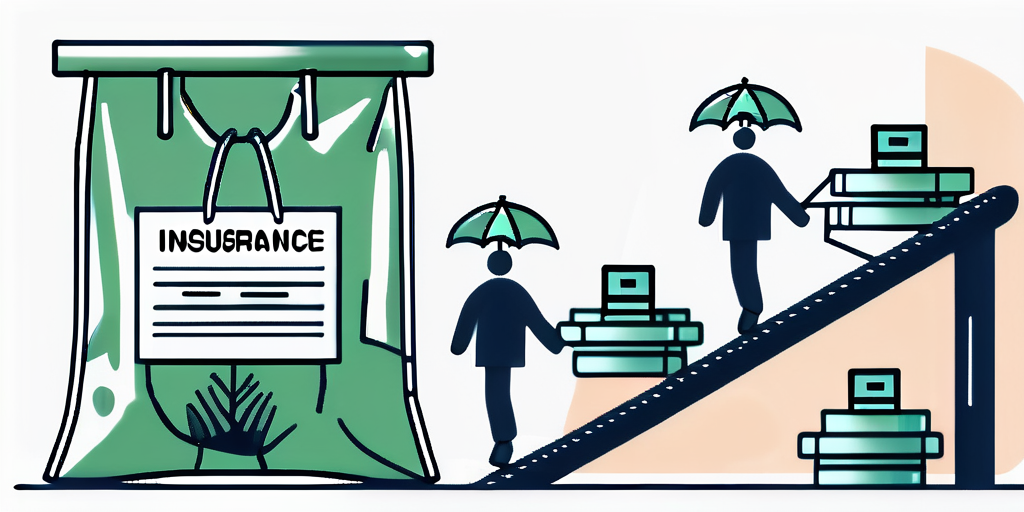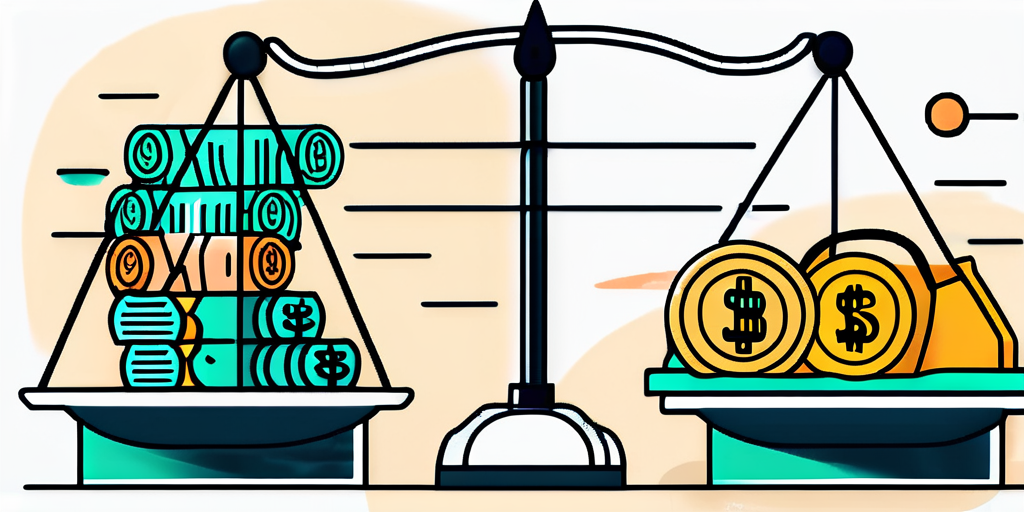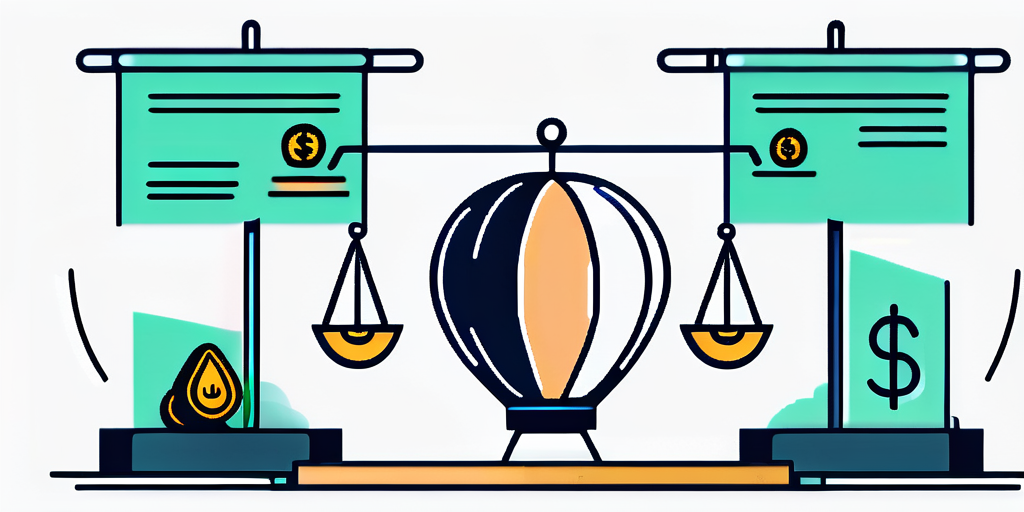Inflation is a concept that can have a significant impact on various aspects of our lives, including insurance premiums. Understanding the connection between inflation and insurance is essential to comprehend how this economic phenomenon influences the cost of our coverage.
Understanding the Concept of Inflation
In order to grasp how inflation affects insurance premiums, it is important to have a solid understanding of the basics of inflation. So, what exactly is inflation? In simple terms, inflation refers to the general increase in prices for goods and services over time. This means that the purchasing power of money decreases as inflation rises. Inflation is typically measured by the Consumer Price Index (CPI), which tracks the average price level of a basket of common goods and services.
The Basics of Inflation
At its core, inflation is driven by a variety of factors, including increased production costs, rising wages, changes in global economic conditions, and fluctuations in the money supply. When these elements come together, they can create an environment where prices for goods and services steadily rise.
One key factor that can contribute to inflation is the state of the housing market. As housing prices increase, so do construction costs and rental rates, leading to a ripple effect on the overall economy. Additionally, geopolitical events such as trade wars or natural disasters can disrupt the supply chain, causing shortages and driving up prices.
Inflation and the Economy
The impact of inflation on the economy can be both positive and negative. On one hand, moderate inflation can indicate a healthy and growing economy. It encourages spending and investment, as people are motivated to purchase goods and services before prices increase further. On the other hand, high inflation can erode purchasing power, reduce consumer spending, and disrupt the stability of the economy.
Furthermore, inflation can have a significant impact on interest rates set by central banks. In times of high inflation, central banks may raise interest rates to curb spending and cool down the economy. Conversely, during periods of low inflation, central banks may lower interest rates to stimulate borrowing and investment, thus boosting economic growth.
The Connection Between Inflation and Insurance
Now that we have a fundamental understanding of inflation, let’s explore how it intertwines with insurance premiums.

Understanding the relationship between inflation and insurance is crucial in comprehending the dynamics of the insurance industry. Inflation, as the general increase in prices of goods and services over time, directly impacts the cost of claims and the overall financial health of insurance companies.
How Insurance Companies Calculate Premiums
Insurance companies take various factors into account when calculating premiums, and inflation is certainly one of them. Insurance is a risk-based business, and the cost of providing coverage must be balanced with the likelihood of claims being made. Inflation impacts this equation by increasing the cost of repairing or replacing damaged property, providing medical care, and covering liabilities.
Moreover, insurance companies also consider the impact of inflation on investment returns. As insurers invest premiums to generate income and pay out claims, they need to factor in inflation to ensure that their investment returns outpace the rising costs associated with inflation.
The Role of Inflation in Insurance Premium Adjustments
To ensure that policyholders are adequately protected, insurance companies periodically adjust premiums to account for inflation. This allows insurers to maintain their financial stability and continue providing coverage that keeps up with the rising costs of goods and services.
Furthermore, inflation not only influences the pricing of insurance premiums but also shapes the types of insurance products offered in the market. Inflation can lead to the development of new insurance products that cater to emerging risks and changing economic conditions, ensuring that policyholders have access to relevant coverage options.
Types of Insurance Most Affected by Inflation
While all forms of insurance can be impacted by inflation to some extent, there are certain types that tend to be more sensitive to these changes.

Understanding how inflation affects different types of insurance can help individuals and businesses make informed decisions when it comes to managing their insurance needs.
Health Insurance and Inflation
Healthcare costs have historically risen faster than the rate of general inflation. This increase in prices for medical services, prescription drugs, and hospital stays directly affects health insurance premiums, making it one of the insurance types most affected by inflation.
Furthermore, advancements in medical technology and treatments, while beneficial for improving health outcomes, can also contribute to rising healthcare costs. As inflation continues to impact the healthcare industry, health insurance providers may need to adjust their coverage and pricing models to keep up with the changing landscape.
Home Insurance and Inflation
When it comes to home insurance, inflation impacts the cost of repairs or rebuilding in the event of damage or loss. Construction materials, labor costs, and other factors influenced by inflation can significantly affect the premiums homeowners pay to protect their properties.
In addition to inflation, natural disasters and extreme weather events can also impact the insurance industry. As climate change leads to more frequent and severe weather patterns, insurers may face increased claims payouts, leading to adjustments in premiums to account for these higher risks.
Auto Insurance and Inflation
Similar to home insurance, auto insurance premiums are influenced by inflation. The cost of repairing vehicles, medical expenses resulting from accidents, and replacement parts can all be subject to inflationary pressures, which can be reflected in the premiums charged by insurance companies.
Moreover, technological advancements in vehicles, such as advanced safety features and autonomous driving capabilities, can also impact auto insurance rates. As cars become more complex and expensive to repair, insurers may need to reassess their pricing strategies to account for these evolving trends in the automotive industry.
Protecting Your Insurance Policies Against Inflation
With inflation impacting insurance premiums, it’s important for policyholders to take steps to protect their coverage and mitigate the effects of rising prices.
Inflation can erode the value of insurance coverage over time, making it crucial for policyholders to stay proactive in managing their policies. By understanding how inflation affects insurance premiums, individuals can make informed decisions to safeguard their financial security.
Tips for Negotiating Insurance Premiums
When renewing your insurance policies, it can be beneficial to do some research and shop around for the best rates. By comparing different insurers and leveraging competition in the market, you may be able to negotiate lower premiums.
Furthermore, it’s essential to communicate openly with your insurance provider about your concerns regarding rising premiums. Many insurers are willing to work with policyholders to find solutions that meet both parties’ needs, such as adjusting coverage levels or exploring discounts.
The Importance of Regular Policy Reviews
Another key aspect of protecting your insurance policies against inflation is conducting regular policy reviews. As your circumstances change and as inflation fluctuates, your coverage needs may evolve. By staying informed and updating your policies accordingly, you can ensure that you have adequate coverage at a reasonable price.
During policy reviews, consider consulting with a financial advisor or insurance specialist to assess your coverage comprehensively. These professionals can provide valuable insights into potential gaps in your insurance protection and recommend adjustments to align with your current financial goals and inflation concerns.
The Future of Inflation and Insurance Premiums
Looking ahead, predicting inflation trends and the impact they will have on insurance premiums is crucial for both insurers and policyholders.

Understanding the intricate relationship between inflation and insurance premiums requires a deep dive into economic principles and market dynamics. Inflation, the rate at which the general level of prices for goods and services rises, directly influences the cost of insurance coverage. As inflation erodes the purchasing power of currency, insurance companies must adjust their premiums to account for the increased costs associated with providing coverage.
Predicting Inflation Trends
Economists and financial analysts employ various models and data to forecast inflation. By analyzing factors such as economic indicators, government policies, and global market conditions, they attempt to determine the direction inflation is likely to take in the future.
Moreover, inflation trends can be influenced by a myriad of factors, including changes in consumer spending habits, fluctuations in commodity prices, and shifts in interest rates. These variables create a complex landscape that requires constant monitoring and analysis to anticipate inflationary pressures accurately.
How Insurance Companies are Adapting
Insurance companies are constantly adapting to changes in the economic landscape, and the impact of inflation on insurance premiums is no exception. Insurers may modify their underwriting practices, update policy wording, adjust coverage limits, and introduce innovative pricing strategies to address the challenges presented by inflation.
Furthermore, insurance companies often leverage advanced data analytics and actuarial techniques to assess the impact of inflation on their risk portfolios. By incorporating inflation forecasts into their pricing models, insurers can more accurately reflect the true cost of providing coverage, ensuring financial stability and sustainability in the face of economic uncertainty.
In conclusion, inflation and insurance premiums are intertwined in a complex relationship. As the cost of goods and services rises over time, insurance companies need to adjust premiums to ensure policyholders are adequately protected. By understanding this connection and taking proactive steps, individuals can protect their insurance policies and navigate the impact of inflation with confidence.
